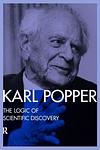The Greatest Austrian "Humanities" Books of All Time
Click to learn how this list is calculated.
This list represents a comprehensive and trusted collection of the greatest books. Developed through a specialized algorithm, it brings together 300 'best of' book lists to form a definitive guide to the world's most acclaimed books. For those interested in how these books are chosen, additional details can be found on the rankings page.
Genres
The category of "Humanities" in books encompasses a wide range of subjects that explore the human experience and expression. This includes literature, philosophy, history, art, music, religion, and language. These books aim to deepen our understanding of the world and ourselves, and to explore the complexities of human culture and society. Through the study of humanities, readers can gain insight into the past, present, and future of humanity, and develop a greater appreciation for the diversity of human thought and expression.
Countries
Date Range
Reading Statistics
Click the button below to see how many of these books you've read!
Download
If you're interested in downloading this list as a CSV file for use in a spreadsheet application, you can easily do so by clicking the button below. Please note that to ensure a manageable file size and faster download, the CSV will include details for only the first 500 books.
Download-
1. Philosophical Investigations by Ludwig Wittgenstein
This book is a seminal work in 20th-century philosophy, presenting a detailed critique of the notion that our language directly corresponds to reality. The author argues that the meaning of words is not inherent, but rather derives from their use within specific forms of life. The book also introduces the concept of language games, suggesting that our understanding of language is akin to learning the rules of a game. The author further explores the limits of language, the nature of understanding, and the relationship between public and private language.
-
2. Tractatus Logico-Philosophicus by Ludwig Wittgenstein
"Tractatus Logico-Philosophicus" is a seminal work in analytic philosophy that presents a comprehensive picture of reality and our knowledge of it. The book outlines a logical structure for all scientific discourse, arguing that language and its logical structure are the primary tools for understanding and representing the world. It proposes that all philosophical problems arise from misunderstandings of the logic of language, and that all meaningful propositions are pictures of states of affairs in the world. The book concludes with the famous line "Whereof one cannot speak, thereof one must be silent," suggesting that things that cannot be spoken about logically should not be spoken about at all.
-
3. The Constitution of Liberty by Friedrich von Hayek
This book is a comprehensive analysis of the concept of liberty, emphasizing the importance of individual freedom in political, societal, and economic contexts. The author argues that a free society, where individuals can act according to their own decisions and plans, is the most effective system for human progress. He also explores the relationship between law and liberty, the role of government in a free society, and the challenges to liberty posed by concepts such as social and economic justice.
-
4. The Logic of Scientific Discovery by Karl Popper
This book is a significant work in the philosophy of science, proposing a methodology for scientific discovery that challenges traditional inductive reasoning. The author argues that scientific theories can never be proven definitively, but can only be corroborated or falsified through empirical testing. He introduces the concept of falsifiability as the key criterion for distinguishing scientific theories from non-scientific ones. The book also delves into the problems of induction, demarcation, and the relationship between theory and observation in scientific practice.
-
5. What Is Life? by Erwin Schrödinger
"What is Life?" is a scientific exploration that delves into the intersection of physics and biology. The book presents the idea that life, at its most basic level, operates according to the laws of physics and chemistry. It introduces the concept of an "aperiodic crystal" that contains genetic information in its configuration of covalent chemical bonds, which later inspired the discovery of the structure of DNA. The book also discusses entropy and negentropy, suggesting that life feeds on negentropy to counteract the natural process of increasing entropy.
-
6. King Solomon's Ring by Konrad Lorenz
This book is a fascinating exploration of animal behavior by a renowned zoologist. It delves into the author's personal experiences and observations of animals in their natural habitats, focusing particularly on birds, dogs, and jackdaws. The author uses these observations to draw conclusions about animal psychology and behavior, often comparing it to human behavior. The book is named after the biblical King Solomon, who was said to have a ring that allowed him to understand the language of animals.
Reading Statistics
Click the button below to see how many of these books you've read!
Download
If you're interested in downloading this list as a CSV file for use in a spreadsheet application, you can easily do so by clicking the button below. Please note that to ensure a manageable file size and faster download, the CSV will include details for only the first 500 books.
Download




